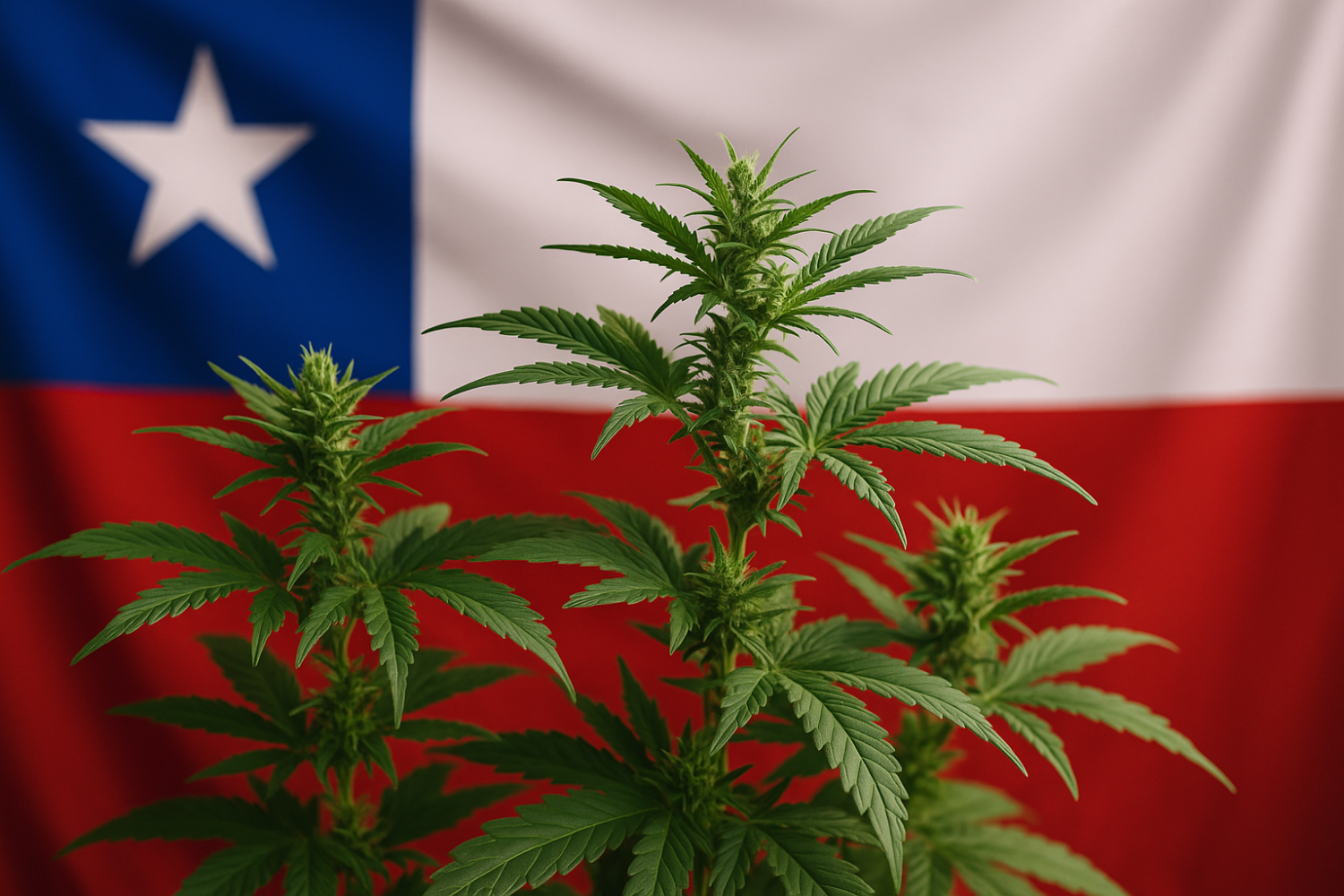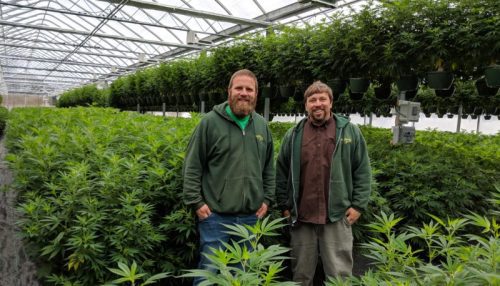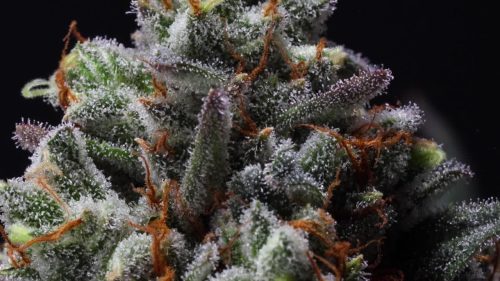Cannabis in Chile has evolved dramatically over the past two decades, transforming from strict prohibition to one of the most progressive medical and cultural movements in South America. Although full recreational legalization is not yet in effect, Chile has established one of the region’s most tolerant environments for personal cultivation, medical use, and advocacy-driven reform.
As Latin America continues to redefine its cannabis laws, Chile stands at a crossroads. It is a country where personal cannabis use is widely accepted, home cultivation is quietly thriving, and public opinion heavily favors broader legalization. Yet, the government continues to balance reform with caution, creating a complex but fascinating cannabis landscape that blends activism, medicine, and changing social norms.
The Legal Status of Cannabis in Chile
Cannabis in Chile is technically illegal under national law, but the reality is far more nuanced. The country’s Law 20.000, enacted in 2005, redefined drug control and allowed for some degree of judicial discretion. It distinguishes between trafficking and personal use, permitting individuals to consume or grow cannabis privately as long as it is clearly for personal purposes and not sale or distribution.
The law does not specify an exact quantity threshold for personal use, which leaves interpretation to judges and prosecutors. However, Chilean courts have consistently ruled that small-scale cultivation for self-consumption is not a criminal act when done privately and without evidence of trafficking. This precedent has effectively decriminalized personal cannabis use in private homes.
In public spaces, consumption remains prohibited. Police can still detain individuals caught using cannabis in public or carrying large quantities, but charges are typically reduced if the individual can demonstrate that the cannabis was intended for personal consumption.
Medical Cannabis in Chile: A Regional Pioneer
Chile became one of the first countries in Latin America to legalize medical cannabis through Supreme Decree 84, signed in 2015 by then-President Michelle Bachelet. The decree authorized the cultivation, processing, and prescription of cannabis-based medicines for patients under medical supervision.
The Chilean Institute of Public Health (ISP) oversees this framework, issuing licenses for cultivation and regulating pharmaceutical imports. One of the most important developments was the partnership between the Daya Foundation and local municipalities, which pioneered the country’s first legal medical cannabis cultivation project in La Florida, Santiago. The initiative provided cannabis oil to cancer patients and those with chronic pain, setting a historic precedent across Latin America.
Today, medical cannabis is legally accessible through licensed pharmacies under prescription. Products like Cannabiol and imported oils from countries such as Canada and Uruguay are available for patients with chronic pain, epilepsy, or chemotherapy-related symptoms. However, affordability and limited access remain major challenges, driving many patients toward home cultivation or community-based supply networks.
Home Cultivation and Personal Freedom of Cannabis in Chile
Cannabis in Chile has a culture deeply rooted in self-sufficiency. Home cultivation is not explicitly legalized, but it has been de facto decriminalized under judicial rulings that recognize personal growing for self-consumption as protected private behavior. Thousands of Chileans now grow cannabis at home, often openly, especially in urban areas like Santiago, Valparaíso, and Concepción.
The National Association for Cannabis Users (ANPUC) and organizations like Fundación Daya and Cultiva Conciencia continue to advocate for clearer cultivation rights. Their efforts have been instrumental in pushing lawmakers to differentiate between small-scale personal growers and criminal traffickers.
Court rulings over the past decade have also consistently protected private cultivation as a constitutional right tied to personal freedom and health. This has made Chile one of the most cultivation-friendly environments in Latin America, even without a formal legalization bill.
Political Debate and Legalization Efforts
Chile’s Parliament has debated cannabis reform for years. In 2021, a bill was introduced to legalize recreational cannabis and establish a regulated market similar to Uruguay’s model. The proposal aimed to allow adults to possess up to 10 grams of cannabis in public and grow up to six plants at home, while also creating a commercial licensing system for sales and production.
Although the bill passed initial committees, political turnover and shifting priorities delayed progress. The discussion resurfaced in 2024, with lawmakers revisiting proposals for controlled adult-use sales and social cannabis clubs. Public polls consistently show that over 70 percent of Chileans support legalization for recreational use, reflecting a cultural shift that has made cannabis a mainstream topic of policy and lifestyle discourse.
The Chilean Ministry of Health and National Service for the Prevention and Rehabilitation of Drug and Alcohol Consumption (SENDA) continue to emphasize education and harm reduction, focusing on youth prevention rather than criminal enforcement. This shift has helped reduce arrests and increase awareness of responsible consumption.
The Culture of Cannabis in Chile
Cannabis in Chile and the overall use has become an undeniable part of youth and urban culture. In Santiago, outdoor festivals, music events, and street art often celebrate cannabis as a symbol of creativity, relaxation, and social freedom.
Major events like the Marcha Cultiva Tus Derechos (Grow Your Rights March) draw tens of thousands of participants annually, uniting advocates from all walks of life.
The Chilean cannabis community also has a thriving creative scene, supported by local brands, seed banks, and grow shops. Seed companies such as Ripper Seeds Chile and Cannabiogen Latam supply strains adapted to the country’s diverse climate, from the coastal humidity of Valparaíso to the arid conditions of the Atacama region.
Social media has also amplified cannabis activism. Influencers, growers, and educators have built large audiences around home-growing tutorials, product reviews, and wellness content that bridges the gap between medical and recreational perspectives.
Economic Impact and Industry Growth
While Chile has not yet developed a fully legalized cannabis economy, the potential for industrial growth is enormous. The country’s agricultural capacity, scientific research institutions, and export infrastructure make it an ideal candidate for large-scale cannabis production once legislation advances.
Already, Chilean universities and private companies are conducting research into cannabinoid extraction, agricultural genetics, and pharmaceutical formulations. Companies like Knop Laboratories and Andes Grow have secured special permits to research and develop cannabis-based medicines, positioning Chile as a potential hub for medical innovation.
If recreational legalization moves forward, Chile could emerge as a key cannabis exporter in South America, competing with Uruguay and Colombia. Its proximity to international markets and reputation for agricultural excellence make it a natural contender in the global cannabis trade.
The Tourism Aspect of Cannabis in Chile
While there is no official cannabis tourism industry, visitors to Chile will find a culture that is open-minded and quietly permissive toward personal use. Cannabis consumption in private spaces is tolerated, and locals often share their home-grown flower socially. However, public consumption and trafficking remain illegal, so tourists should exercise caution and discretion.
Popular destinations like Valparaíso, Santiago, and La Serena have visible cannabis subcultures, with local smoke shops, CBD boutiques, and cannabis-friendly cafes operating within the bounds of existing law. The country’s natural beauty also attracts wellness travelers seeking alternative therapies, meditation, and plant-based healing experiences that occasionally incorporate medical cannabis oils or CBD treatments.
CBD and Hemp in Chile
CBD has become one of Chile’s fastest-growing wellness trends. Products such as oils, tinctures, creams, and capsules are widely sold through pharmacies and wellness shops, often sourced from local producers or imported from Europe and North America.
Chile also recognizes hemp as an agricultural crop, with pilot projects testing industrial varieties under controlled conditions. The government has allowed limited hemp cultivation for research and manufacturing purposes, particularly in the regions of Maule and O’Higgins. Advocates believe hemp could play a key role in revitalizing rural economies, creating sustainable jobs, and supporting eco-friendly materials and textiles.
Public Opinion and Social Change About Cannabis in Chile
Public attitudes toward cannabis in Chile have shifted dramatically. A 2024 survey by Activa Research found that more than 70 percent of adults support legalization for recreational use, and over 80 percent support medical access. The cultural stigma once associated with cannabis has largely disappeared, replaced by an understanding that responsible use is part of modern health and wellness.
Chile’s approach to cannabis has also influenced regional politics. As neighboring countries like Argentina, Colombia, and Brazil explore broader reforms, Chile’s balanced model—focused on private consumption, personal freedom, and medical access—serves as a reference point for the rest of South America.
Challenges Ahead
Despite progress, major obstacles remain. Chile’s lack of clear possession limits, inconsistent enforcement, and bureaucratic delays for medical licenses continue to frustrate patients and consumers. The market also struggles with limited access to high-quality legal products, forcing many to rely on unregulated sources.
Political divisions have slowed legislative reform, as conservative lawmakers push back against full legalization. Nonetheless, growing public support and international trends are creating pressure for modernization. Legal experts predict that Chile will eventually pass an adult-use framework within the next five years, driven by the country’s evolving public health approach and economic potential.
The Future of Cannabis in Chile
Chile’s cannabis future is bright. The country has already proven it can regulate medical use responsibly, protect personal freedom, and nurture a strong grassroots community. The next step is to harmonize those elements into a unified national strategy that balances personal liberty with economic growth and public health.
If Parliament finalizes legalization, Chile could emerge as a leader in the Latin American cannabis economy—an industry that could generate millions in tax revenue, create sustainable agricultural jobs, and advance global medical research. With public opinion on its side and a foundation built on education and science, Chile is poised to play a pivotal role in the next phase of the global cannabis movement.
Frequently Asked Questions About Cannabis in Chile
Is cannabis legal in Chile?
Cannabis remains illegal at the federal level, but personal use and home cultivation for private purposes are decriminalized when not associated with trafficking or sale.
Can I grow cannabis in Chile?
Yes, you can grow small amounts for personal use. Chilean courts have consistently ruled that private cultivation for self-consumption is not a criminal offense.
Can I buy cannabis legally?
No retail system exists yet. Cannabis cannot be sold commercially, but individuals may share it privately without payment.
Is medical cannabis legal?
Yes, Chile legalized medical cannabis in 2015 under Supreme Decree 84. Patients can access cannabis-based medicines through prescriptions and licensed pharmacies.
Can tourists use cannabis in Chile?
Tourists may consume cannabis privately but cannot purchase or possess it publicly. Importing or exporting cannabis remains illegal.
Are CBD products legal?
Yes, CBD oils and topicals are legal and available for purchase through pharmacies, wellness stores, and licensed online retailers.
What penalties exist for public use?
Public consumption is prohibited and may result in fines or confiscation, but imprisonment for small personal possession is rare.
Is cannabis socially accepted in Chile?
Yes, cannabis use is widely accepted, especially among younger generations and in urban areas like Santiago and Valparaíso.
What are Chile’s prospects for legalization?
Chile is expected to consider full legalization in the coming years as public support grows and regional trends push reform forward.
–
Pair your next smoke session with a Triple hemp THC seltzer or lemonade or a Happie hemp THC seltzer — use code RespectMyRegion20 at checkout for a discount on Happie products. Both deliver smooth, uplifting effects that enhance relaxation and complement your favorite terpenes.
Affiliate Disclaimer:
Some links in this article may be affiliate links. Respect My Region may earn a small commission if you purchase through them. The code “RespectMyRegion20” provides a discount on Happie products. All products are intended for adults 21+ and compliant with hemp and cannabis laws where applicable. Respect My Region does not sell or distribute THC or hemp-derived products directly.
Respect My Region Editorial Disclaimer
This article is for educational purposes only and does not constitute legal advice. Cannabis laws in Chile may change, and enforcement varies by region. Always verify current regulations before possession, cultivation, or consumption. Respect My Region does not promote or endorse illegal activity.







